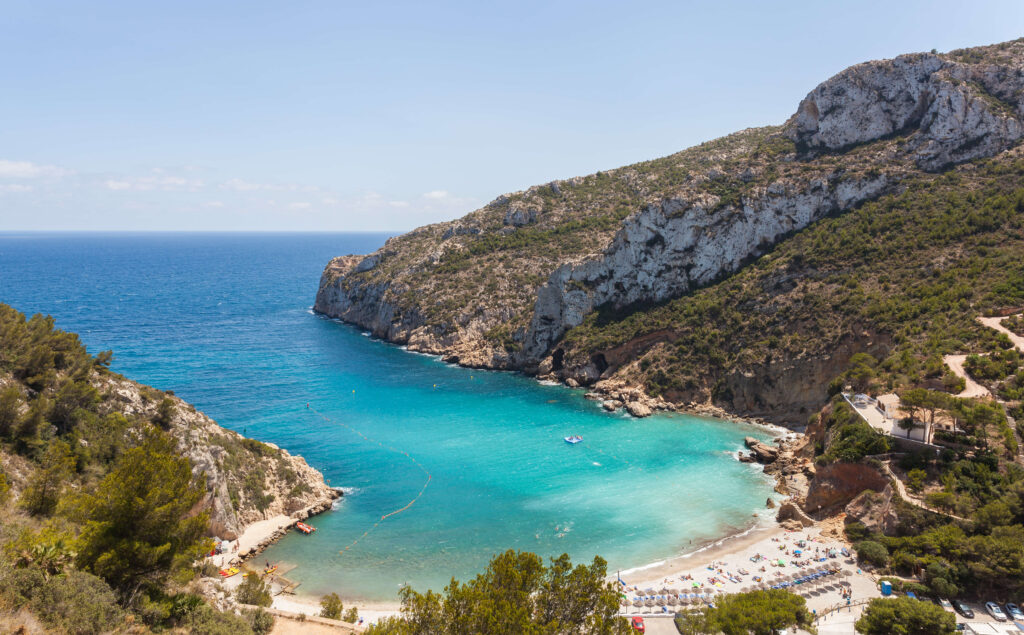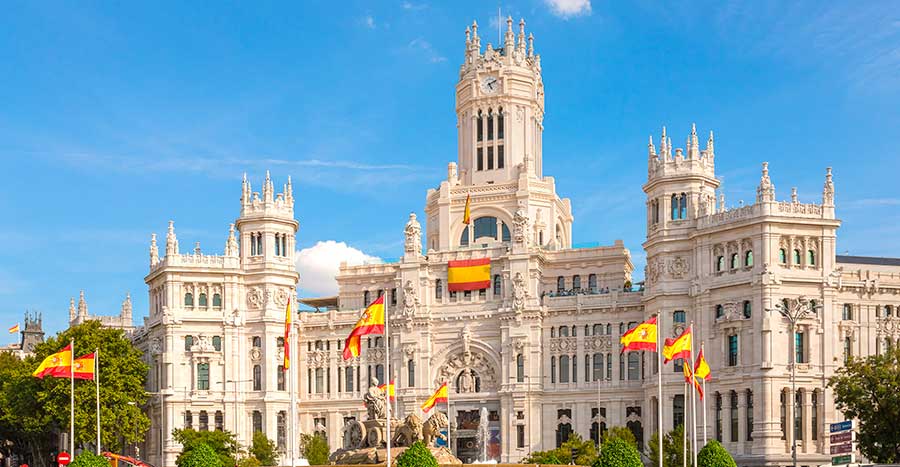Housing has been one of the most prominent points of state policy since Pedro Sánchez began to govern in 2018. In these six years, changes have been applied to the Urban Leases Law (LAU), the first state Housing Law or the youth rental voucher have arrived. In addition, with the arrival of the pandemic and the economic consequences of the war in Ukraine, rents rose and evictions were suspended, while now the aim is to eliminate the ‘golden visa’ and guarantee the purchase of the first home for young people and families. All this interventionism has triggered insecurity in the residential market, with a ‘scare’ of supply and increasingly high prices in the face of a demand that continues to look for a house.
2018-2024: Intervention in the housing market
Since his arrival in government, just over six years ago, the successive executives of President Pedro Sánchez have developed a series of measures in the field of housing, with the intention of improving access to families to a home and making it easier for them to be more affordable. But the facts are showing that the intervention of the State in the markets, especially in leasing, is producing the opposite effect to that intended.
The housing market has ‘punished’ the imposition of government control measures, with a
Finally, another of the great promises of Pedro Sánchez’s government is to expand the public housing stock, which is currently at a meager 2%, and perhaps less, compared to the average of 9% in Europe. Between April and May 2023, the president spent his time promising to increase the number of social and affordable rental homes to reverse the rise in prices with more supply on the market.
Although the numbers are still confusing to interpret whether they are currently counted or not, the current Ministry of Housing intends to have more than 123,000 homes, plus 50,000 units from Sareb that it would sell to the Autonomous Communities and City Councils, and another 11,000 homes from the Social Housing Fund, which are already provided by banks and other entities.
These remaining more than 123,000 homes are distributed in several programs that come out of the land that will be ceded for construction by the Public Land Business Entity (Sepes), with almost 36,000 homes, another 20,000 that will be built with the European NextGenerationEU funds, plus the more than 14,200 units provided for in the State Housing Plan, and another 43,000 to which the Government will give financing facilities through ICO loans.
All good intentions and good words that are being developed with agreements with Autonomous Communities and city councils that the Ministry of Housing announces, but the reality is that the first constructions will be completed in mid-2026, if there are no problems.
towards other types of rentals, such as temporary, tourist or room rentals, which are currently less regulated, which together with the significant demand that continues to look for a house has raised prices to historic highs, both for buying and renting.
Of the reform of the LAU….
During his first term, after the motion of censure against Mariano Rajoy, the main measure in housing was the reform of the Urban Leases Law (LAU), which mainly involved an increase in the duration of contracts from the three years, which had been in operation since 2013, to five years, to which were added other measures such as the CPI once again being the benchmark index in renewal of rental contracts (until then, the main reference was the Competitiveness Guarantee Index), or the creation of a house price index.
Although its approval was not a ‘piece of cake’ for the PSOE government alone, which saw the Congress of Deputies overturn the first text at the end of 2018, although it was finally approved in March 2019 by the Permanent Commission of the Lower House after the election call of April 28, 2019.
….to the Housing Law, with a pandemic in between
After two elections in less than six months, Pedro Sánchez’s second term began in January 2020 after the agreement with Podemos. But just three months later, the coronavirus crisis broke out. A few hard months, in which the Executive prohibited evictions from homes and allowed rental contracts to be extended for six months, even if they expired. These measures were extended in successive decrees between 2020 and 2021 to deal with the exceptional effects created by the covid-19 pandemic.
When everything seemed to be returning to normal, the Government pushed through the first state Housing Law. The Council of Ministers approved the draft law on 1 February 2022 after suffering several delays during its drafting process. Despite the fact that he asked for it to be processed by the urgent procedure in the Cortes in order to meet the deadlines, the text was finally kept in a drawer of Congress for 15 months until an agreement was reached with the parties that supported the investiture of Pedro Sánchez in May 2023, and just before regional and municipal elections. the result of which led to another general election in July of the same year.
During all this time, and the year that has been in force, instead of generating confidence in the market, what it has caused is uncertainty even before the Government’s proposals to control rental prices or tax empty housing, although everything depended on the Autonomous Communities and municipalities implementing these measures of the state law.
The Housing Law is in the Constitutional Court, where it has already received a ruling that endorsed a large part of its text, although it partially upheld the appeal of unconstitutionality filed by the Junta de Andalucía, especially those related to the exclusive regional competences in housing matters.
The appeals of the Community of Madrid or the Balearic Islands, the Parliament of Catalonia or the popular parliamentary group in the Congress of Deputies are still pending.
Crisis due to the war in Ukraine and rent cap
Just a few days after the approval of the Housing Law in the Council of Ministers, the war broke out in Ukraine in 2022. In a short time, inflation began to rise and in view of the Executive’s forecasts, on March 30 it launched an emergency decree with several economic measures to alleviate the effects of the war.
Among them, it established a cap on the increase in rents of 2% in the annual renewal of lease contracts, linked to the Competitiveness Guarantee Index (IGC), and the suspension of evictions from homes, which was successively extended throughout 2022 and 2023.
At a time when inflation exceeded 10%, especially in the summer of 2022, rents that were renewed could not rise by more than 2%. A measure that has already been in place for more than two years, and that during 2024 has risen to 3% increase in rents.
From 2025, a new rent index will be applied, which will be decoupled from inflation, and which is currently prepared by the National Institute of Statistics (INE).
From the Youth Rental Voucher to ICO guarantees for the purchase of housing
In recent years, the Executive has also launched the Youth Rental Bonus, a monetary benefit that seeks to help young people access rental housing, so that they can emancipate themselves or live on their own. The aid, launched in 2022, amounts to 250 euros per month for a maximum of two years until it reaches 6,000 euros.
The Youth Rental Voucher was born with a budget of 200 million euros, and the intention of reaching more than 70,000 young people under 35 years of age.
Its application has been very disparate depending on the Autonomous Community that managed it, with delays and complaints from young tenants in Andalusia or Madrid. The Youth Rental Voucher has been extended in the following years, but the deadlines for applying for it this year are not yet known.
Recently, the Government also approved a line of guarantees with the Official Credit Institute (ICO), endowed with 2,500 million euros to cover 20% of the down payment for the purchase of the first home for young people up to 35 years of age or families with dependent children, to which several financial institutions have already joined.
The regulation that remains pending approval…
With all this, the Government continues with measures in the field of housing, and after the approval of the Housing Law, which mainly intervenes in the habitual rental market and aspires to increase the residential stock, it has now set itself the objective of regulating seasonal rentals and renting flats, which have been left out of this regulation with the new Ministry of Housing at the helm. underway since the end of 2023.
The Executive is late aware of the departure of the supply of long-term rental housing towards these other types of leases, less regulated, and is now trying to control them.
Regulation of seasonal rentals and room rentals
The regulation of seasonal rentals and room rentals is going on for a while, in a processing process that has its time and is still in the preparation phase. The Ministry of Housing has a group of experts that is studying what measures to take in the face of these leases that are growing in the main markets, to avoid the regulation of traditional rents, which are already intervened by the Urban Leases Law (LAU) and the Housing Law.
According to the latest data published by idealista, the weight of this type of rental reached up to 11% of the entire market in the first quarter of 2024, with a year-on-year increase in stock of 56% year-on-year, and has been especially significant in Palma, Malaga, San Sebastián and Seville. Meanwhile, the supply of permanent rentals fell by 15%, also in large cities, except in Valencia and Malaga.
Regulation of tourist flats
Meanwhile, another of the open fronts is the regulation of tourist flats. Although the Government has announced that it is going to launch a digital platform that will allow the autonomous communities to detect tourist homes that do not have authorisation, it is these together with the City Councils that have the competences in terms of economic activities related to tourism and urban planning.
Barcelona has revolutionised the situation of tourist flats in recent days by announcing the Pla Viure, for which it will not give any more licences and will not renew the current permits for the 10,000 homes for tourist use, which will lose their validity in November 2028.
The Minister of Housing and Urban Agenda, Isabel Rodríguez, has been asking the Autonomous Communities and City Councils for some time to start taking measures against tourist flats that make it difficult to access housing.
Pending the Land Law
Another reform that has been pending is that of the Land Law. Everything seemed to be going ahead before the summer, but the lack of agreement within the Government, and with the investiture partners, slowed down the processing of the reform of the Revised Text of the State Law on Land and Urban Rehabilitation.
After the European elections, the Executive has taken up the measure and has presented together with the PNV a bill practically similar to the previous one, but adding the prevalence of regional regulations. This regulation is so important for the sector that the Popular Party is going to present its own Land Law through the Senate.
And the end of the ‘golden visa’
Another of the ‘hot’ points that the Government still has in place is the repeal of the so-called ‘golden visa’, the granting of residence permits to non-EU foreigners who invested more than 500,000 euros in housing. A measure that was advanced by President Pedro Sánchez last April, and that the Council of Ministers itself announced on April 9 that it was going to start the procedures, but that has not yet been finalized.
The Minister of Housing, Isabel Rodríguez, has already stated on several occasions that they are studying different formulas to eliminate these permits, but it has not been specified how.
The ‘great promise’ of 184,000 public housing units
Finally, another of the great promises of Pedro Sánchez’s government is to expand the public housing stock, which is currently at a meager 2%, and perhaps less, compared to the average of 9% in Europe. Between April and May 2023, the president spent his time promising to increase the number of social and affordable rental homes to reverse the rise in prices with more supply on the market.
Although the numbers are still confusing to interpret whether they are currently counted or not, the current Ministry of Housing intends to have more than 123,000 homes, plus 50,000 units from Sareb that it would sell to the Autonomous Communities and City Councils, and another 11,000 homes from the Social Housing Fund, which are already provided by banks and other entities.
These remaining more than 123,000 homes are distributed in several programs that come out of the land that will be ceded for construction by the Public Land Business Entity (Sepes), with almost 36,000 homes, another 20,000 that will be built with the European NextGenerationEU funds, plus the more than 14,200 units provided for in the State Housing Plan, and another 43,000 to which the Government will give financing facilities through ICO loans.
All good intentions and good words that are being developed with agreements with Autonomous Communities and city councils that the Ministry of Housing announces, but the reality is that the first constructions will be completed in mid-2026, if there are no problems.
 ru
ru  es
es  uk
uk 









